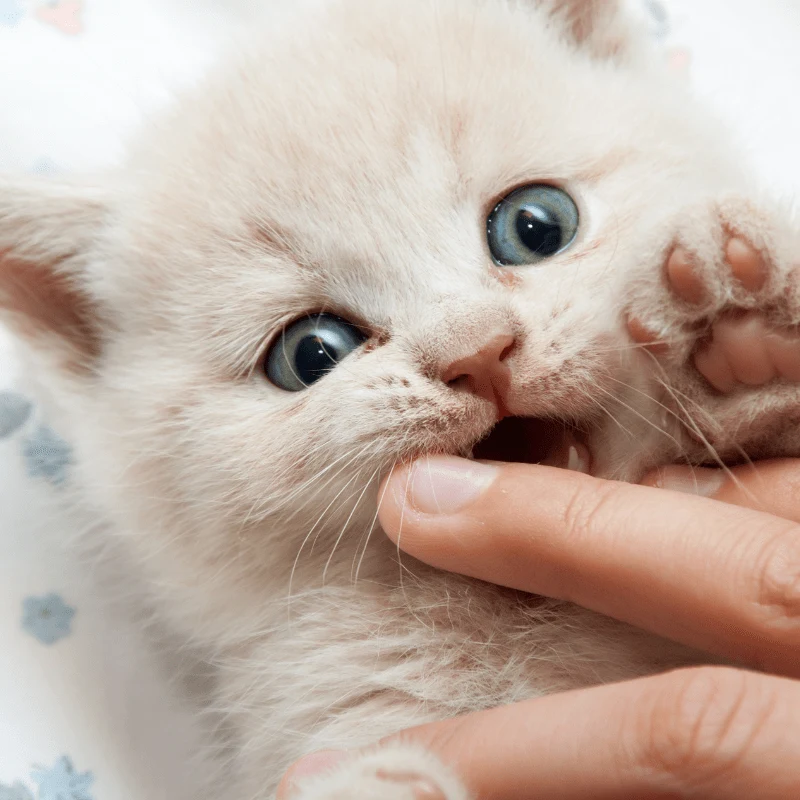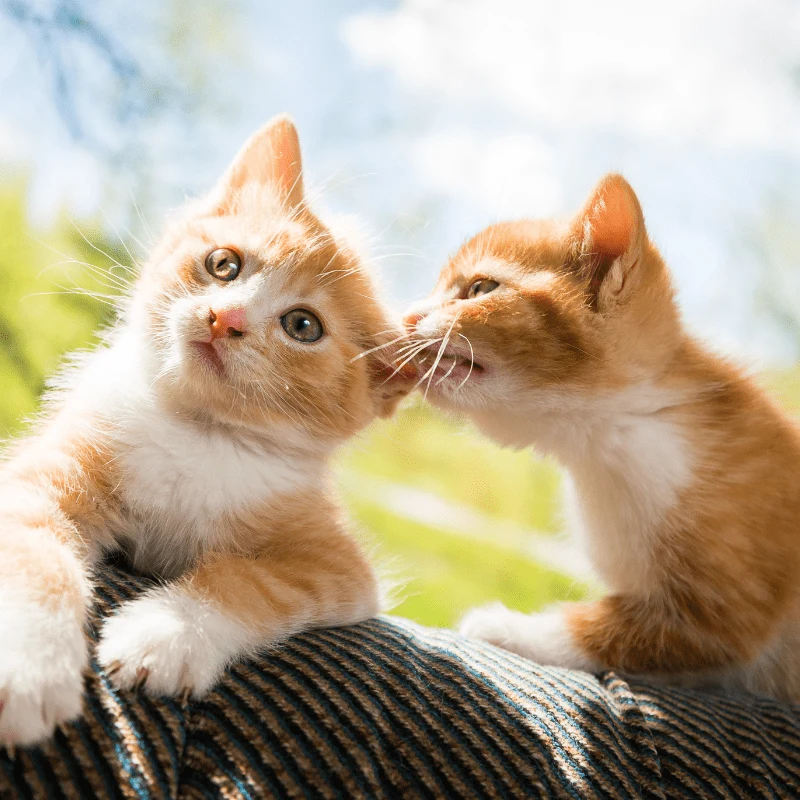Blog: Tired of Kitten Biting? Here's How to Put an End to It
Tired of Kitten Biting? Here's How to Put an End to It

Kittens are a lot of fun, but if you're new to owning one, you might not know how to handle their scratching and biting. This behavior is natural for kittens, and it's not always a sign of aggression or fear. However, if you don't take care of the problem before it becomes serious, it can become a bigger problem for you and the little ones in your family.
The good news is that kittens can usually be trained to avoid this behavior in most cases. Find out why your kitten might be scratching and biting and what you can do to resolve this problem.
What Makes Kittens Scratch and Bite?
Playfulness in kittens sometimes results in scratching and biting, but it is not uncommon. So what makes kittens scratch and bite?

There are a few reasons. First, kittens are curious creatures and like to explore everything with their mouths and claws. This can lead to them accidentally scratching or biting you when they're in a playful mood.
Another reason is that kittens are still learning how to control their strength and nails. So sometimes they might scratch or bite harder than they intended to, especially when they're excited or scared.
Last but not least, kittens may use their nails or teeth to defend themselves if they feel threatened, scared, or cornered. In cats of all ages, scratching is a natural way to mark territory. However, kittens often scratch when they are stressed or anxious. As kittens grow into cats, the majority of them lose the need to scratch gradually. However, some cats never lose this instinct.

So If your kitten has been scratching or biting, you should try to figure out what's causing it. Is your kitten just being playful? Or is there something else going on that's causing it to feel scared or aggressive? Knowing the cause can help your kitten better control themselves, preventing accidental scratches and bites in the future.
Make an appointment with your veterinarian if you are uncertain of the reason behind your kitten's behavior if it seems abnormal.
How to Stop Scratching and Biting
There are a few things you can do to help stop kittens’ unwanted behavior.
First, provide them with plenty of toys and scratching posts so they have an outlet for their energy. Kittens are full of energy and love to play. If they don't have anything to do, they may start biting as a way to release all that energy. So, make sure your kittens have plenty of toys and things to keep them occupied. Scratchers, sisal posts and mats are also a great way to help them release excess energy and keep their claws healthy

Also, do not punish your kittens when they scratch or bite you, as this will only cause fear and might, lead to further behavioral problems. It might be difficult to know how to discipline your kitten when they scratch or bite, but it's important to resist the urge to punish them. Kittens are still learning how to control their claws and teeth, and punishing them will only make them more anxious and stressed. Instead, try to provide them with positive reinforcement when they use their claws and teeth appropriately. For example, you can give them a treat or some extra attention when they sharpen their nails on a scratcher instead of your furniture.
Thirdly, Use your voice. Say "OW!" “OUCH” in a loud but not overwhelming voice when your kittens bite or start scratching in inappropriate places. This will startle your kittens and help them understand that their actions are not acceptable. Be consistent with this, and eventually your kittens will learn that some behaviors are not tolerated.

Finally, giving your kitten lots of love and attention is one of the best ways to help them feel secure and less likely to bite or scratch unexpectedly. When they are not threatened or scared, they are less likely to lash out in response. If you give them lots of caring attention, they will learn to trust you and feel comfortable around you, which will help prevent any aggressive behaviors.
Conclusion

If you have consistently used these methods and your kitty is still attacking you for no reason, it is time to speak with a vet or get the help of a behavior specialist. The sooner you deal with this behavior, the easier it will be to prevent future episodes. Also, it is important to remember that kittens are extremely playful, and this behavior is not a sign of aggression. However, it is important that you teach them at a young age that biting and scratching are not acceptable otherwise they will continue with this behavior into their adult life and it will be much harder to stop.
Like this project
Posted Feb 19, 2023
This project is a comprehensive blog post that will provide readers with an in-depth understanding of why kittens bites.
Likes
0
Views
12






